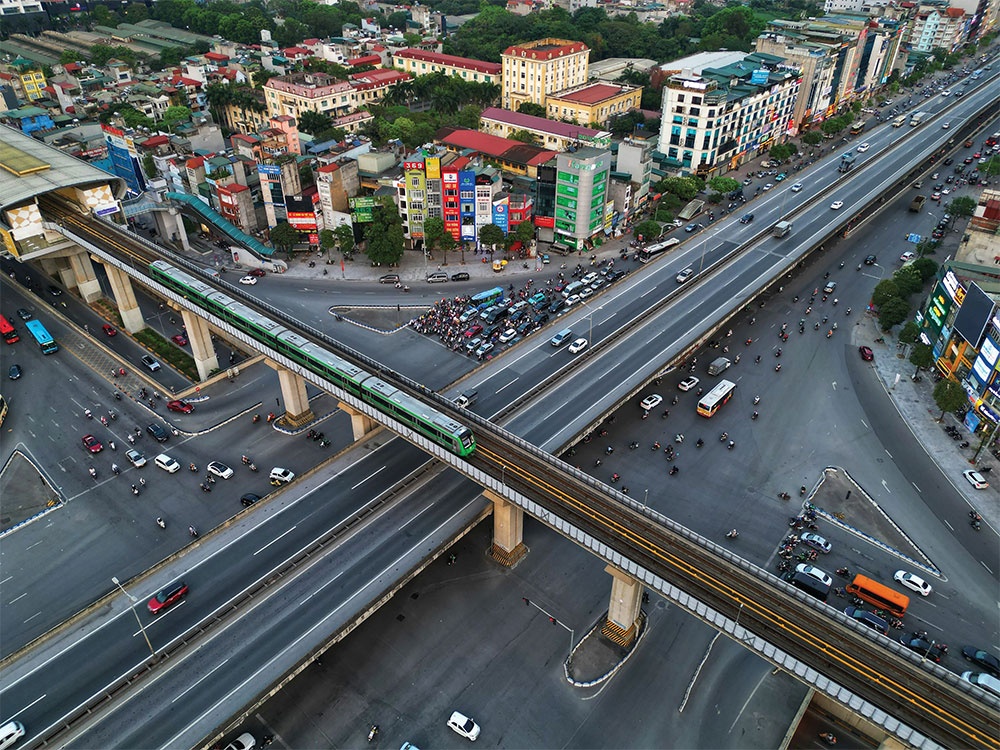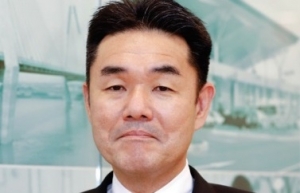Sluggish ODA-loan status unacceptable
The government has sent a report on Vietnam’s financial situation to the National Assembly Standing Committee for consideration, which stated that disbursement of official development assistance (ODA) and foreign concessional loans so far in the 2021-2025 period remains at a slow pace and lower than initial estimates.
Specifically, public investment from these sources sits at $12.6 billion, including a provisional sum of $1.26 billion for the medium-term public investment plan to 2025.
Under a resolution adopted in June, the legislature and the prime minister have so far allocated over $9.9 billion to ministries, central agencies, and localities, while $1.46 billion has been earmarked for provision as the aforementioned investment plan. In which, total public investment from these capital sources for the 2021-2023 period stood at $4.87 billion, which includes $1.22 billion for this year.
Disbursement results, however, showed that the disbursement hit 32.85 per cent of the initial plan in 2021 and 45.45 per cent last year – both lower than 50 per cent.
“Slow disbursement of foreign capital has been an issue that has been prolonging for many years, resulting in a reduction of capital usage effectiveness and the government’s prestige and in decreases in socioeconomic benefits from projects,” said Minister of Planning and Investment Nguyen Chi Dung.
 |
| Sluggish ODA-loan status unacceptable, illustration photo |
The government has pointed out a series of obstructions behind the slow disbursement.
“In addition to objective causes and external challenges that have slowed down economic growth, and reduced the domestic demands for consumption and expenditure, while increased prices of materials, there have been many subjective reasons driving state-funded projects into delay,” read the government report.
One of the major causes is the low readiness of projects is slow-paced site clearance and resettlement. For example, Hanoi People’s Committee in July issued a decision on adjusting the 12.5km urban metro line of Nhon-Hanoi railway station. The project is scheduled to be completed in 2027, with total capital revised up to nearly $1.47 billion – up by close to $81 million from the figure stipulated a decade ago.
According to the Hanoi Management Authority for Urban Railways, the project’s implementation has been facing massive difficulties such as complicated and prolonged site clearance, while consultants, investors, and authorised agencies have failed to coordinate effectively. What is more, regulations about ODA allocation of Vietnam and those of donors are, in some areas, incompatible.
The government report also stated that in many cases, sluggishness can be seen in determining land compensation prices and boundaries of project components. Besides that, slowness is also seen in bidding activities and procedures, as well as implementing contracts.
“This can be seen in many projects such as the Nhon-Hanoi railway station metro line, the project to build the Yen Xa wastewater treatment facility, Ben Tre General Hospital, and the project to upgrade Hanoi Pharmacy University, Tan Vu-Lach Huyen expressway, and the project to develop the Lao Cai urban area,” the report said.
In addition, according to the Ministry of Planning and Investment (MPI), other obstructions behind slow disbursement also exist. For example, detailed allocation of capital plans for projects remain slow and are often not adjusted in time. In numerous instances, capital has been arranged for projects that have not completed procedures for adjusting investment policies. The assigned capital plan is insufficient compared to disbursement needs due to the lack of a medium-term capital plan.
In addition, there have also been issues in adjusting projects, investment policies, and loan agreements, with lengthy design, appraisal, and approval procedures. Adjusting projects and loan agreements has been common, with an average of about 20-30 projects/loan agreements being processed each year.
“There are also differences in the laws and lending policies between Vietnam and donors, for example, when it comes to tax issues and exemptions for lenders, bidding, signing commercial contracts, compensation, resettlement, and social environmental standards,” the MPI said.
According to the ministry, problems can also be seen in application of laws due to different forms among donors, while ensuring compliance with the domestic law and the equality among donors. Differences between the domestic law and donor regulations will have to be submitted, leading to prolonged negotiation and signing of the loan agreement.
This would also mean mobilising and using capital has become increasingly difficult, slower than expected, and the scale of mobilisation as expected has been tough to achieve, the MPI added.
 | Japan steadfast in ODA acceleration goal The Japan International Cooperation Agency (JICA) is planning continued provision of official development assistance (ODA) to Vietnam in the future. Sugano Yuichi, chief representative at JICA Vietnam, discussed with VIR’s Thanh Dat about the direction of this cooperation. |
What the stars mean:
★ Poor ★ ★ Promising ★★★ Good ★★★★ Very good ★★★★★ Exceptional
Related Contents
Latest News
More News
- VIFC launches aviation finance hub to tap regional market growth (February 06, 2026 | 13:27)
- KKR and Singtel step up data centre investment in Southeast Asia (February 06, 2026 | 13:09)
- MAE names big 10 policy wins in 2025 (February 06, 2026 | 08:00)
- US firms deepen energy engagement with Vietnam (February 05, 2026 | 17:23)
- Vietnam records solid FDI performance in January (February 05, 2026 | 17:11)
- Site clearance work launched for Dung Quat refinery upgrade (February 04, 2026 | 18:06)
- Masan High-Tech Materials reports profit: a view from Nui Phao mine (February 04, 2026 | 16:13)
- Hermes joins Long Thanh cargo terminal development (February 04, 2026 | 15:59)
- SCG enhances production and distribution in Vietnam (February 04, 2026 | 08:00)
- UNIVACCO strengthens Asia expansion with Vietnam facility (February 03, 2026 | 08:00)

 Tag:
Tag:


















 Mobile Version
Mobile Version